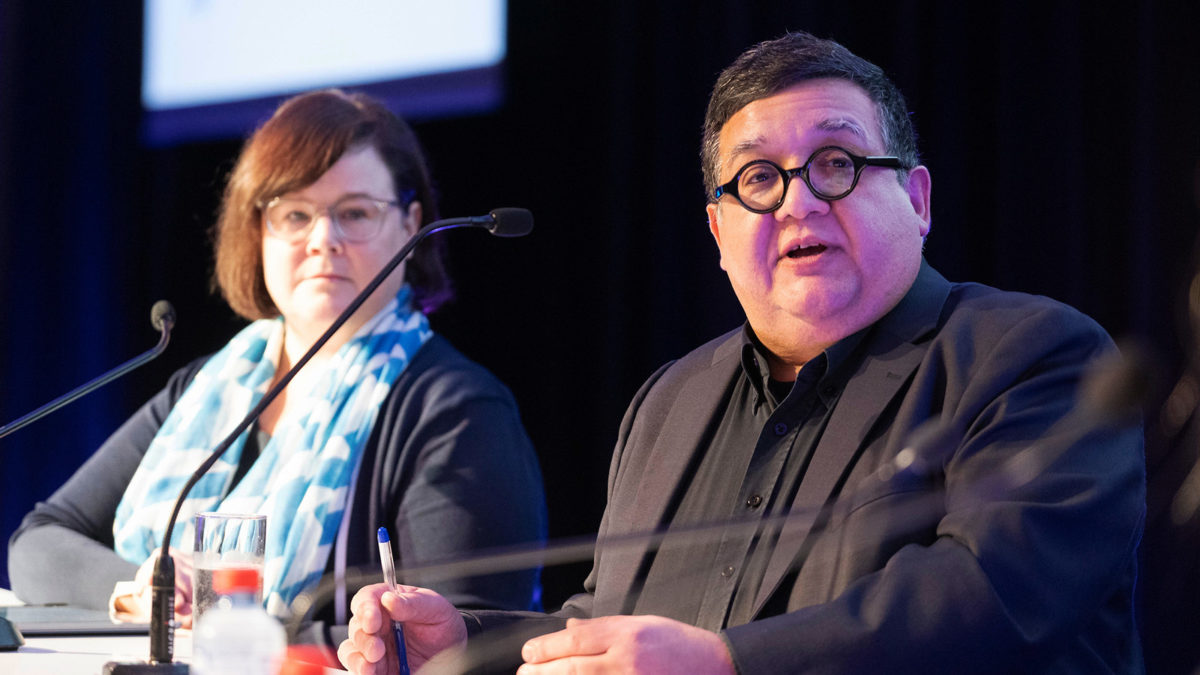At ASI, a big picture comes with a small note of caution
Industry super funds have been on a decade-long high, with a reputation boosted by their low cost, robust returns, and their easy passage through the Hayne royal commission. But facing into a more volatile period, it’s no surprise that there were calls from some of the industry’s top investors for a renewed focus on the everyday business of superannuation.
Few were eager to slide away from super’s newfound utopian visions, with AustralianSuper CIO Mark Delaney reiterating that big super has a role to play in the energy transition and nation building projects promised in the upcoming Labor years. But funds can’t let those projects distract from their core purpose.
“(Giving people decent retirement incomes) has to be the biggest problem we’re trying to solve. If we can do other things along the way, that’s a worthwhile activity,” Delaney said. “But the things we do as part of that journey should be part of generating good returns for people. We can’t do them at the expense of returns.”
“Climate, social conditions, wages, generally are things that become good investments. I don’t think it is a trade-off, but you do want to keep an eye on the investment returns when you do these things.”
For some, the march towards renewables and nation-building evokes memories of the $685 million Pacific Hydro write-down, in which AustralianSuper was ensnared. At the time, then-CEO Ian Silk warned the board that Pacific Hydro “has been cited as an example of ideological investment that has occurred to the detriment of industry fund members”, and could be used to justify “action that would affect all industry funds”.
Nobody wants to see a repeat. Still, as Hostplus CIO Sam Sicilia noted, funds long ago realized that it’s impossible to separate the action of putting a dollar into markets from the good or bad that dollar does.
“If you put a dollar into a start-up company, you create employment,” Sicilia said. “You can’t help but do that. It’s not as if you’re focusing on the social good at the expense of the return. All you need to do is focus on the return and all the other things follow. We realized, as an industry, there’s more to invest in than a transaction. It’s about shaping and nudging the outcome while not forgetting the primary focus has to be returns to members.”
But those small notes of caution were absent from the big pictures sketched at the ASFA conference just months before, where Cbus chair Wayne Swan exhorted the industry to take a greater role in driving economic outcomes in Australia and finance minister Stephen Jones promised an enduring partnership with the Labor party should it be elected – and it was.
As Sicilia noted in the same session, industry super can’t afford to get on the wrong side of any political party – especially ones that might not yet be in power. Funds have previously been excoriated for perceived noisiness on the nation-building front when they were only supposed to be thinking about member returns. Too much enthusiasm here could cost them in the future.
And not losing sight of member outcomes has existential implications when competition for those members is heating up. While Sicilia was quick to proclaim that Choice of Fund legislation was the beginning of the end for the retail funds, it’s a fact that they’re quickly getting their act together in the aftermath of the so-called “Wexit” – the big banks’ move to sell their super assets in the knowledge that they weren’t doing all that good a job of managing money.
Mercer Super’s acquisition of BT’s super assets – for which Hostplus was rumoured to be an early contender – gives that fund significant scale to compete in the local marketplace, with the kind of global support that industry funds can only dream of. Colonial First State, backed by KKR, isn’t sitting on its hands either; AMP might someday emerge from the doldrums. And once Vanguard finally gets its super offering operational – reportedly held back by delays in APRA’s registerable superannuation entity licencing process, but coming later this year – industry funds will face stiff competition from a brand name favourite of younger investors at what could be a fraction of the cost.
Still, Sicilia believes industry super’s “productive years are yet to come” as funds move from their “adolescent stage” to full maturity. The future looks bright if they can keep the collaborative spirit that created collective vehicles like IFM alive.
“(Collaboration) needs to be done at the scale we’re now at,” Delaney said. “The concept of what collaboration looked like when we were small is not the same as what it looks like when we’re much larger. It’s no different to how investment models have changed over time; the collaboration model will have to change and evolve over time.”










